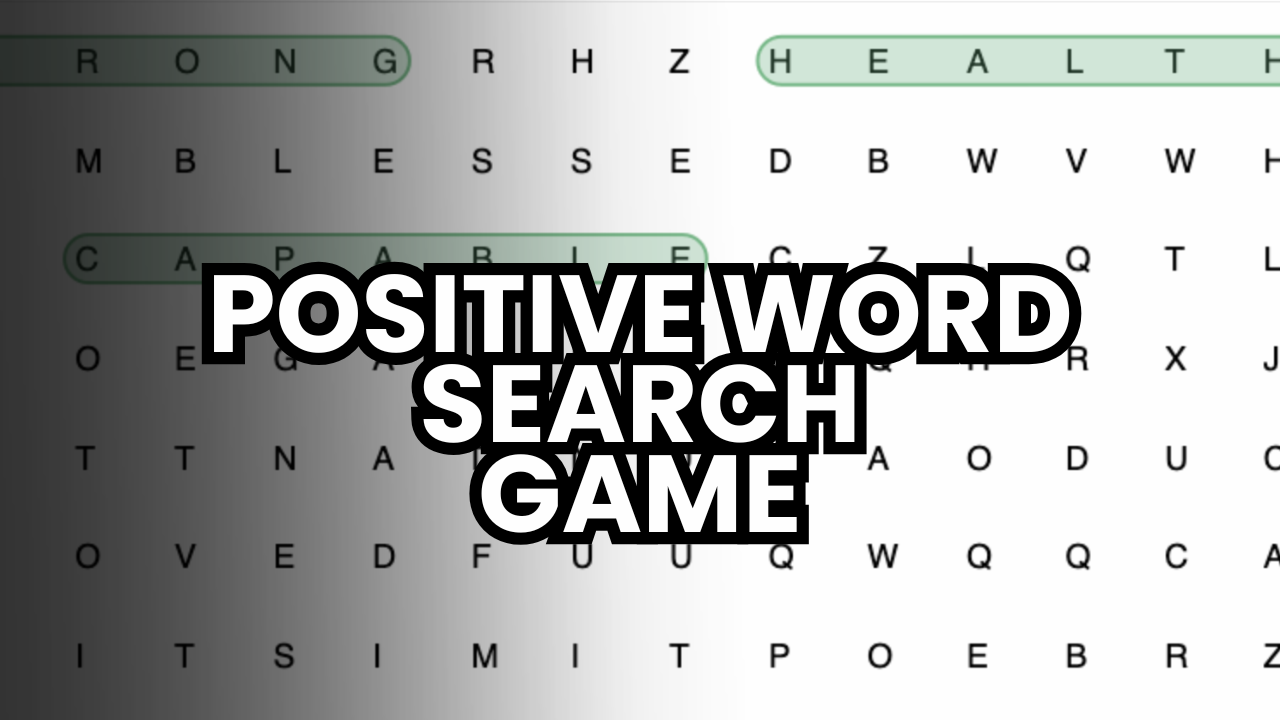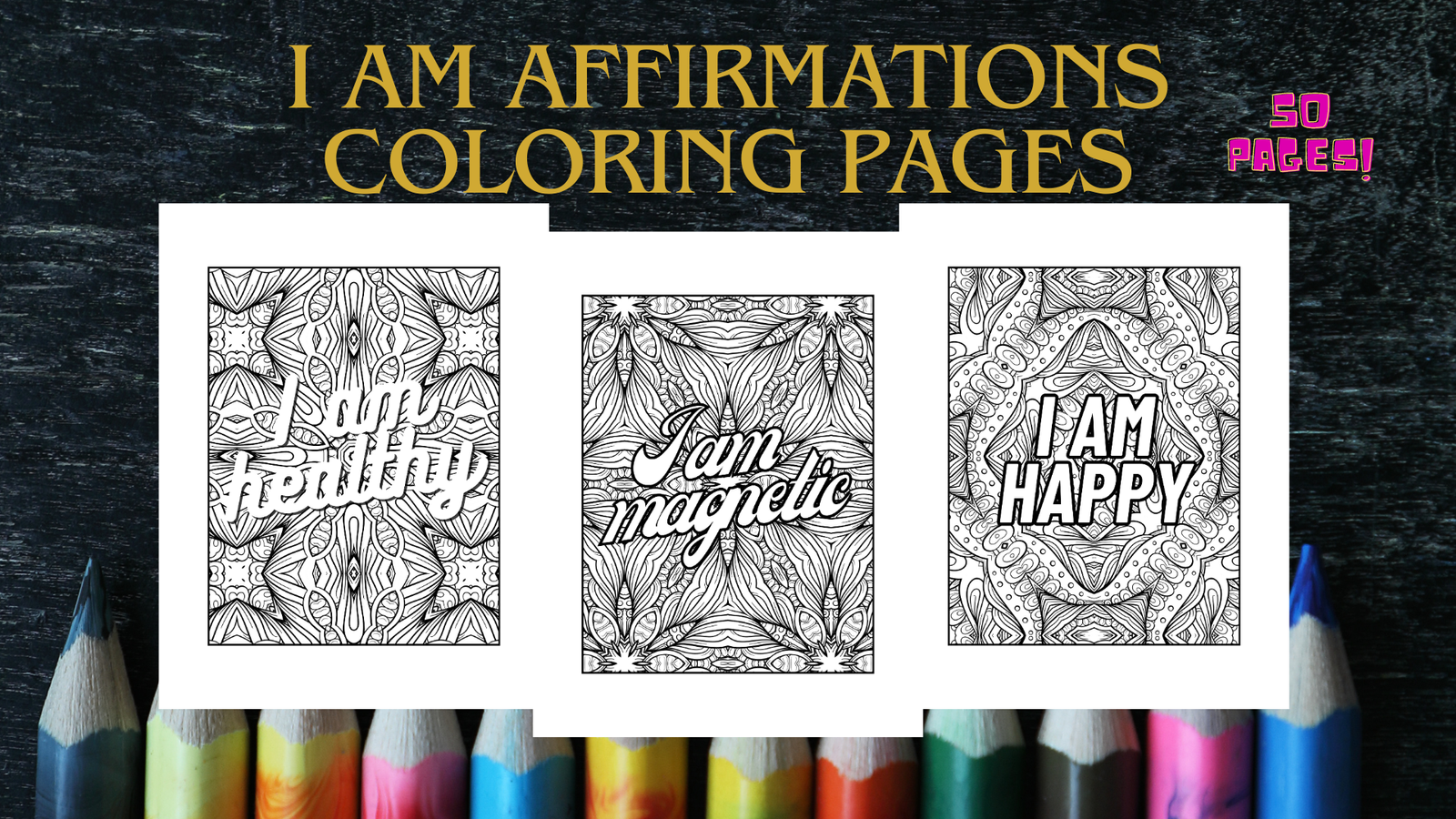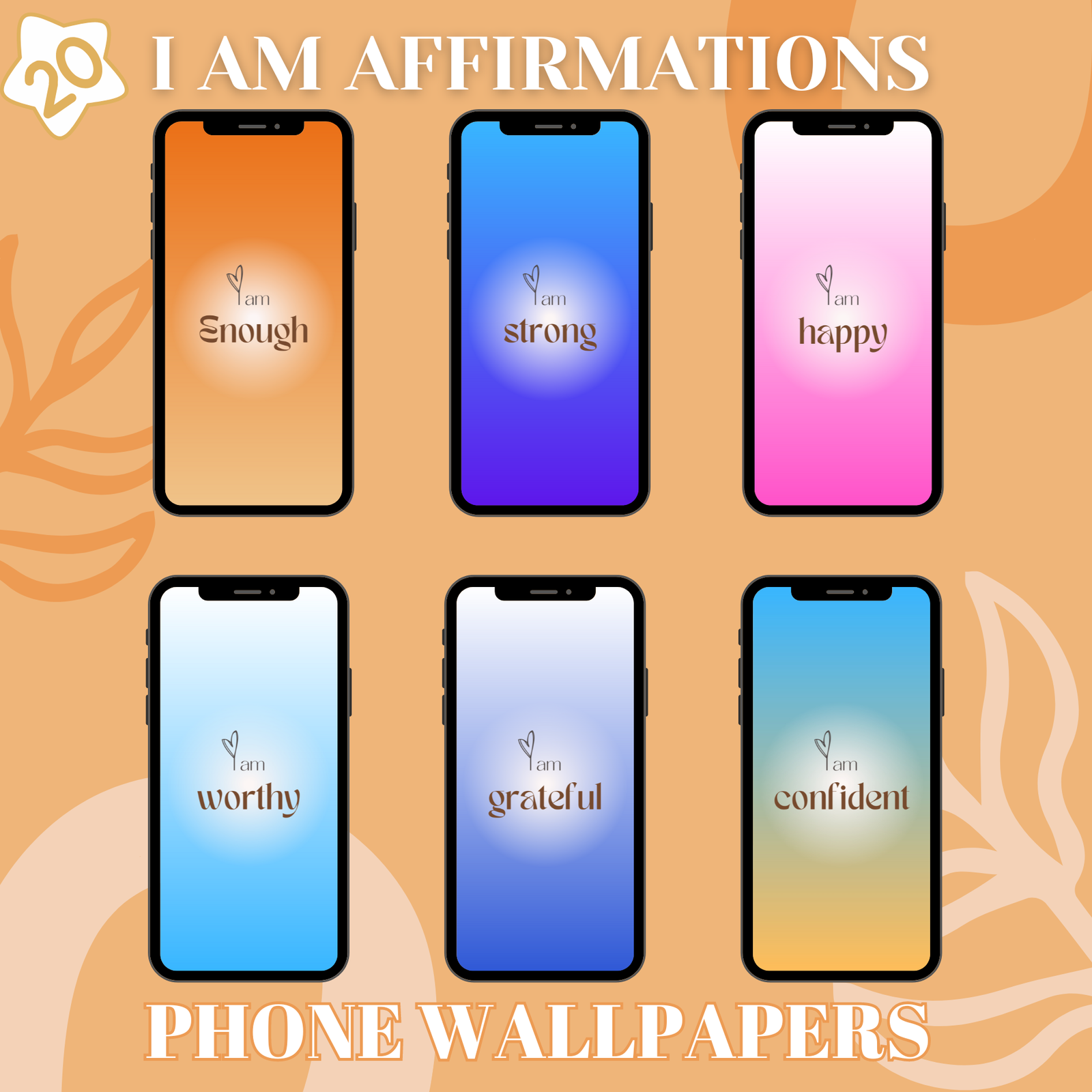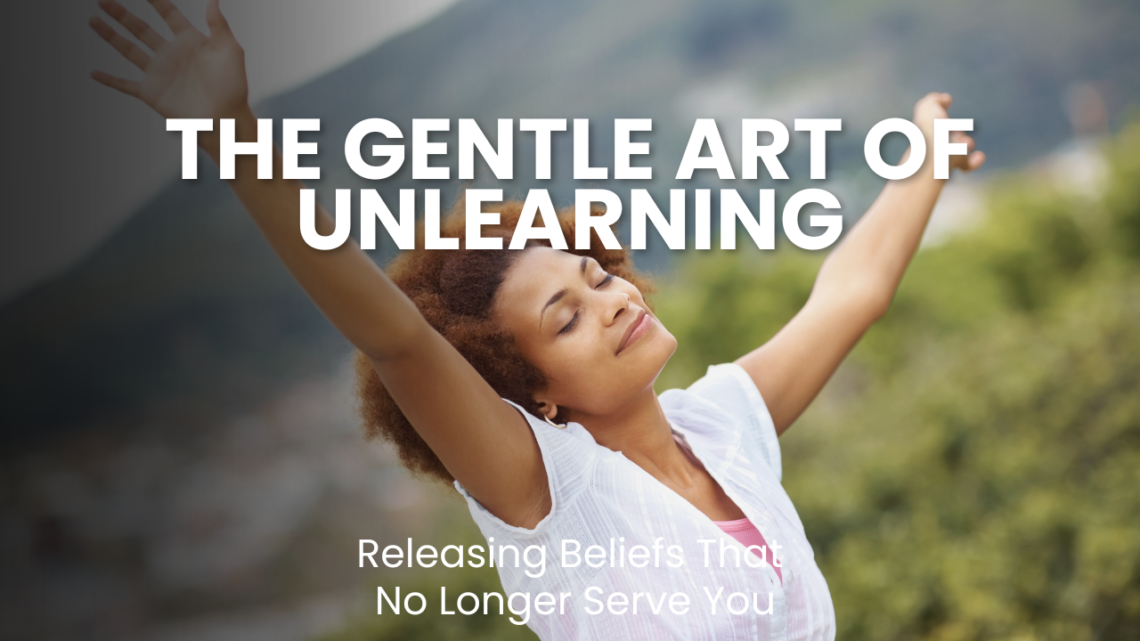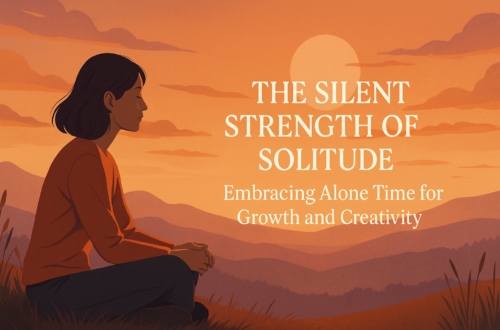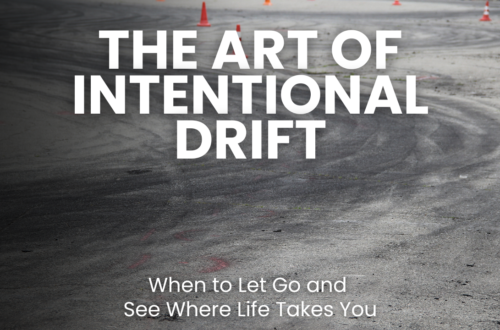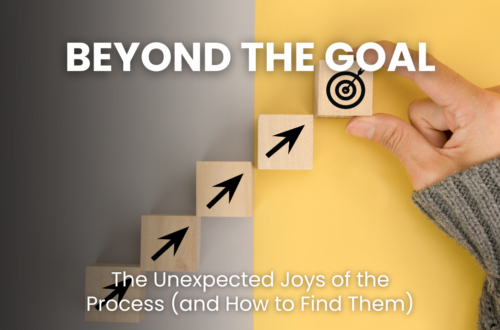In a world constantly evolving, the ability to learn is hailed as a cornerstone of progress. Yet, often overlooked is its equally vital counterpart: the gentle art of unlearning. Unlearning is not about erasing knowledge or denying past experiences; rather, it’s about consciously identifying, questioning, and releasing beliefs, assumptions, habits, and mindsets that no longer serve our highest good. It’s a process of shedding the old to make space for the new, of liberating ourselves from the invisible chains of outdated paradigms that hinder our growth and prevent us from truly thriving.
This journey of unlearning is not a forceful act of demolition, but a gentle, intentional unfolding. It’s an invitation to introspection, a compassionate self-inquiry into the roots of our convictions. Just as a gardener prunes withered branches to allow new growth, we too must be willing to prune the beliefs that have outlived their usefulness, creating fertile ground for a more authentic and fulfilling existence.
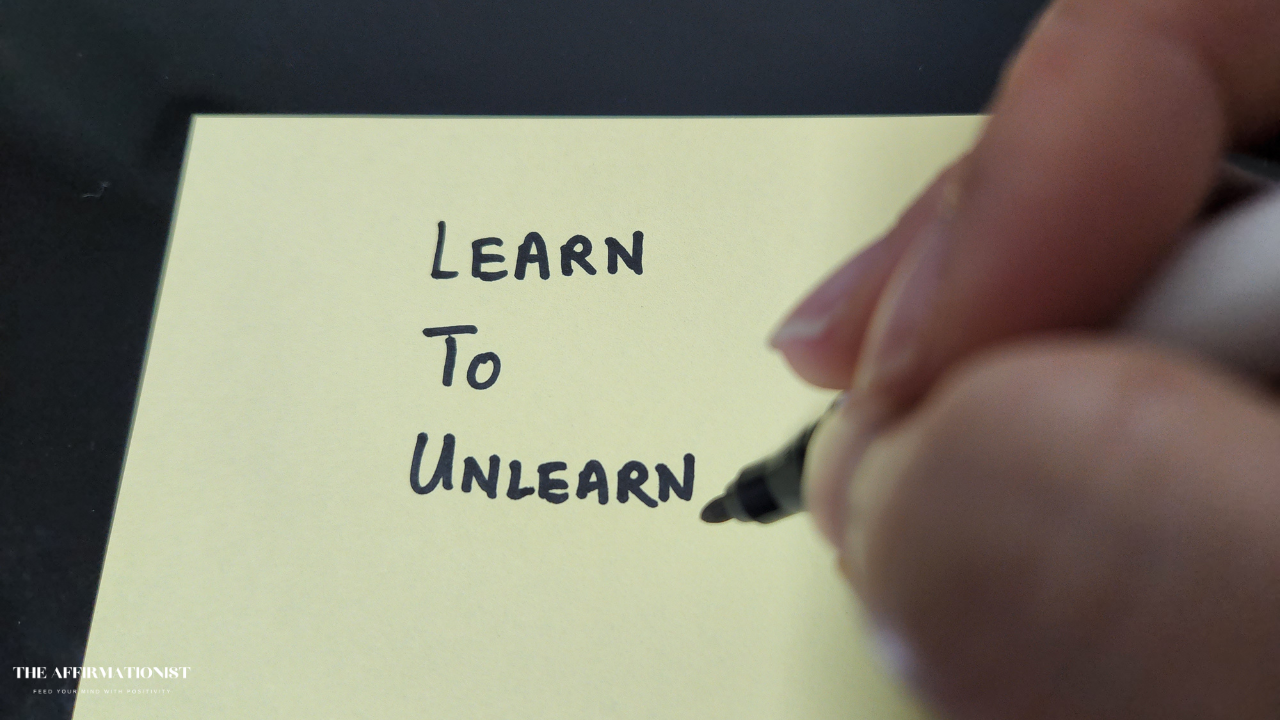
Why Unlearning is Not Just Important, But Essential for Growth
From the moment we are born, we are immersed in a sea of information, absorbing beliefs and habits from our families, cultures, education systems, and societal norms. Many of these serve us well in our formative years, providing structure, safety, and a framework for understanding the world. However, as we mature, circumstances change, and our understanding deepens, some of these deeply ingrained patterns can become limitations.
Imagine carrying a heavy backpack filled with rocks. In childhood, perhaps those rocks represented lessons learned, protections established, or societal expectations met. But what if, years later, you’re still carrying rocks that no longer serve a purpose, yet continue to weigh you down? These metaphorical rocks are the beliefs and habits we need to unlearn.
Hinders Personal Evolution: Our beliefs shape our reality. If we hold onto beliefs that are no longer accurate or empowering, we limit our perception of what’s possible. For example, a belief like “I’m not good enough” can manifest as self-sabotage, missed opportunities, and a constant feeling of inadequacy, regardless of external achievements. Unlearning this limiting belief opens the door to self-acceptance and genuine confidence.
Stifles Creativity and Innovation: Innovation thrives on challenging the status quo. If we’re stuck in old ways of thinking, we’re less likely to come up with novel solutions or embrace new perspectives. Unlearning outdated methodologies or rigid creative processes allows for breakthroughs and fresh approaches. Think of artists who break free from conventional forms, or scientists who challenge established theories – their ability to unlearn prior assumptions is key to their revolutionary contributions.
Impairs Relationships: Many interpersonal conflicts stem from rigid beliefs about how others “should” behave or how relationships “ought” to be. Unlearning judgmental attitudes, victim mentalities, or fixed expectations can significantly improve communication, empathy, and the quality of our connections. It allows us to approach others with an open heart and mind, fostering genuine understanding rather than imposing our pre-conceived notions.
Creates Emotional Bottlenecks: Holding onto old grievances, resentments, or fears can manifest as chronic stress, anxiety, or even physical ailments. Unlearning these emotional burdens is akin to releasing a pressure valve, allowing for emotional freedom and a greater sense of peace. This often involves unlearning the narrative we’ve constructed around past hurts and choosing a path of forgiveness – both for ourselves and others.
Limits Adaptation and Resilience: The world is in a constant state of flux. Those who can adapt, pivot, and embrace change are the ones who thrive. Unlearning rigid plans, fixed identities, or a need for certainty allows us to navigate uncertainty with greater grace and build resilience in the face of adversity. It’s about letting go of the need for control and trusting in our ability to navigate the unknown.
Promotes Authentic Living: When we unlearn beliefs that aren’t truly ours – beliefs adopted from others or societal pressures – we move closer to our authentic selves. This process of self-discovery is incredibly liberating, allowing us to live in alignment with our true values and desires, rather than conforming to external expectations. It’s about stripping away layers of conditioning to reveal the core of who we are meant to be.
Identifying the Beliefs That No Longer Serve You: The Self-Inquiry Phase

The first step in unlearning is awareness. We cannot release what we don’t recognize. This phase requires honest introspection and a willingness to confront uncomfortable truths.
1. Pay Attention to Your Language and Inner Dialogue:
- “Always” and “Never” Statements: These are often indicators of rigid beliefs. “I always fail,” “I’ll never be able to do that,” “People are always judgmental.” Challenge these absolutes.
- Self-Limiting Labels: “I’m not a morning person,” “I’m bad with money,” “I’m not creative.” These labels become self-fulfilling prophecies.
- Victim Mentality: Phrases that suggest a lack of agency or external blame: “It’s not fair,” “They made me feel…”
- Judgmental Language: How do you speak about others? Often, our judgments of others reflect our own unexamined beliefs about ourselves or the world.
2. Observe Your Emotional Triggers:
- What situations or interactions consistently provoke strong negative emotions (anger, frustration, sadness, fear)? These emotional hotspots often point to deeply ingrained beliefs that are being challenged or violated. For example, if you consistently get angry when someone criticizes your work, it might stem from a belief that your worth is tied to external validation.
- Explore the root of the emotion: What belief is being threatened? What expectation is not being met?
3. Analyze Recurring Patterns and Outcomes:
- Are you consistently attracting similar types of relationships?
- Do you repeatedly find yourself in the same financial struggles?
- Do you keep hitting a “ceiling” in your career or personal development?
- These recurring patterns are often a reflection of underlying beliefs that are driving your actions and choices, even unconsciously.
4. Question Your Assumptions About the World and Others:
- Why do you believe certain things about money, success, relationships, or happiness?
- Where did these beliefs come from? Were they taught to you? Did you form them based on a single experience?
- Are these assumptions truly universal, or are they simply your interpretation?
- Consider the opposite: What if your assumption isn’t true? How would that change your perspective?
5. Reflect on Past “Failures” or Regrets:
- What beliefs did you hold that led to those outcomes?
- Could a different belief have led to a different path?
- This is not about blame, but about learning and identifying ingrained patterns of thought.
6. Identify Your “Shoulds” and “Musts”:
- “I should be further along by now.”
- “I must always be productive.”
- “I should never show weakness.”
- These often reveal societal or self-imposed expectations that might not align with your true desires or well-being.
Journaling is an incredibly powerful tool for this self-inquiry phase. Dedicate time to writing freely about your thoughts, feelings, and observations without judgment. Ask yourself open-ended questions and allow the answers to emerge.
The Gentle Process of Releasing: A Compassionate Approach

Once a belief has been identified, the work of releasing it begins. This is where the “gentle art” truly comes into play. It’s not about forcing change, but about gradually loosening the grip of old paradigms.
1. Acknowledge and Validate:
- The first step is to acknowledge the belief’s existence without judgment. Recognize that it served a purpose at some point, even if that purpose is now obsolete. For instance, a fear of public speaking might have once protected you from perceived social rejection in childhood.
- Validate the part of you that created or held onto that belief. There’s no need for self-reproach. This compassionate self-understanding is crucial for moving forward.
2. Deconstruct the Belief: Where Did It Come From?
- Trace its origins: Was it a parental admonition? A cultural norm? A conclusion drawn from a single negative experience?
- Understanding the source can help you detach from its power. If a belief was adopted uncritically, recognizing that can diminish its hold.
- Is it truly your belief, or something you absorbed from external sources?
3. Challenge the Evidence: Is It Still True?
- Seek Counter-Evidence: Look for instances where the belief doesn’t hold true. If your belief is “I’m always unlucky,” recall times when you experienced good fortune.
- Consider Nuance: Are there exceptions to the rule? Is the belief universally applicable, or only in specific contexts?
- Hypothetical Scenarios: Imagine if the belief weren’t true. How would your life be different? What possibilities would open up?
- Future-Pacing: How will this belief serve you five or ten years from now? Is it leading you towards the future you desire?
4. Reframe the Narrative:
- Instead of “I’m bad at math,” reframe it as “I struggled with math in the past, but I’m capable of learning new skills.”
- Shift from blame to responsibility (without self-blame): “I made a choice that didn’t serve me,” instead of “I always mess things up.”
- Change “I can’t” to “I haven’t learned how yet” or “I choose not to.”
- Actively construct a new, empowering belief that you want to embody.
5. Practice Conscious Replacement:
- This is the active cultivation of new, empowering beliefs. If you’re letting go of “I’m not creative,” intentionally tell yourself, “I am a creative being,” or “Creativity flows through me.”
- Use affirmations, visualization, and journaling to reinforce the new belief.
- Repeatedly expose yourself to experiences that contradict the old belief and support the new one. If you believe you’re not good at public speaking, start by speaking up in small group settings, then gradually progress.
6. Take Small, Deliberate Actions:
- Action is the ultimate unlearner. It proves to your subconscious that the old belief is no longer valid.
- If you believe you’re not disciplined, commit to one small, consistent action each day (e.g., meditating for 5 minutes).
- Each successful action, no matter how small, erodes the old belief and strengthens the new.
7. Cultivate Mindfulness and Presence:
- Many old beliefs operate on an unconscious level. By being present and mindful, you can catch yourself when an old thought pattern or habit arises.
- Observe the thought without judgment, then gently redirect your attention to the present moment or to your new, chosen belief. This creates a gap between the trigger and your reaction, allowing for conscious choice.
8. Embrace Forgiveness (Self and Others):
- Holding onto past grievances or self-condemnation can anchor old beliefs. Forgiveness is not about condoning harmful behavior, but about releasing yourself from its emotional grip.
- Forgive yourself for past mistakes, for holding onto limiting beliefs, and for not knowing better. This self-compassion is a powerful catalyst for unlearning.
9. Seek Support and Guidance:
- Talking to a trusted friend, mentor, therapist, or coach can provide valuable external perspectives and help you identify blind spots.
- Joining support groups or communities focused on personal growth can offer a sense of belonging and shared understanding.
- Reading books, listening to podcasts, and engaging with content that challenges your old beliefs can provide new frameworks for understanding.
10. Be Patient and Compassionate with Yourself:
- Unlearning is not a linear process. There will be moments of regression, doubt, and frustration.
- Treat yourself with the same kindness and understanding you would offer a dear friend.
- Celebrate small victories. Acknowledge every step forward, no matter how tiny.
- Remember, these beliefs were often formed over years, even decades. Gently loosening their hold takes time and consistent effort.
Specific Areas for Unlearning and Practical Examples

The “Gentle Art of Unlearning” can be applied to virtually every aspect of life. Here are some common areas where ingrained beliefs often hinder growth:
1. Unlearning Limiting Beliefs About Self-Worth:
- Old Belief: “I’m not good enough unless I achieve X or Y.” (Often tied to external validation).
- Unlearning Process:
- Recognize that your inherent worth is not dependent on external achievements, societal approval, or others’ opinions.
- Practice self-compassion and radical self-acceptance.
- Focus on internal validation: What do you value about yourself?
- Engage in activities that genuinely bring you joy and fulfillment, regardless of outcome.
- New Belief: “I am inherently worthy, valuable, and deserving of love and happiness simply because I exist.”
2. Unlearning Fear of Failure/Perfectionism:
- Old Belief: “Mistakes are bad and must be avoided at all costs.” / “Everything must be perfect.”
- Unlearning Process:
- Reframe “failure” as feedback, a learning opportunity, or a stepping stone.
- Embrace the concept of “good enough” over “perfect.”
- Take calculated risks and allow yourself to make mistakes.
- Celebrate effort and progress, not just perfect outcomes.
- Understand that perfectionism often stems from a fear of judgment or rejection.
- New Belief: “Mistakes are essential for growth and learning. I embrace imperfection and strive for progress, not perfection.”
3. Unlearning the Need for Control:
- Old Belief: “I must control every outcome to feel safe and secure.”
- Unlearning Process:
- Recognize that much of life is inherently unpredictable.
- Differentiate between what you can control (your actions, reactions, mindset) and what you cannot (other people’s behavior, external events).
- Practice surrender and acceptance.
- Develop trust in your ability to adapt and navigate uncertainty.
- Engage in mindfulness practices to stay grounded in the present moment.
- New Belief: “I choose to focus on what I can control, and I trust my ability to adapt and thrive amidst uncertainty.”
4. Unlearning Scarcity Mindset (Money, Time, Opportunities):
- Old Belief: “There’s not enough to go around.” / “If someone else wins, I lose.”
- Unlearning Process:
- Shift from a focus on lack to an appreciation for abundance.
- Practice gratitude for what you already have.
- Understand that resources can be created and expanded.
- Recognize that collaboration often leads to more for everyone.
- Invest in your skills and growth to create more opportunities.
- New Belief: “The world is abundant, and there is enough for everyone. I am capable of creating and attracting prosperity in all areas of my life.”
5. Unlearning Imposter Syndrome:
- Old Belief: “I’m a fraud, and eventually, everyone will find out.”
- Unlearning Process:
- Acknowledge your accomplishments and capabilities. Keep a “win” journal.
- Understand that many successful people experience imposter syndrome.
- Separate your feelings from facts. Just because you feel like a fraud doesn’t mean you are one.
- Focus on providing value and contributing, rather than on self-assessment.
- Seek external validation from trusted mentors or colleagues who recognize your abilities.
- New Belief: “I am competent and capable. My skills and experiences are valuable, and I deserve my successes.”
6. Unlearning Limiting Beliefs About Aging or Physical Capabilities:
- Old Belief: “As I get older, I will inevitably decline.” / “I’m not strong enough to do X.”
- Unlearning Process:
- Challenge societal narratives around aging.
- Focus on proactive health and well-being.
- Explore new activities and push perceived boundaries gently.
- Celebrate the wisdom and experience that comes with age.
- Recognize the power of the mind-body connection.
- New Belief: “I am capable of vitality and growth at any age. My body is strong and adaptable, and I am continually evolving.”
Sustaining the Art of Unlearning: A Lifelong Practice
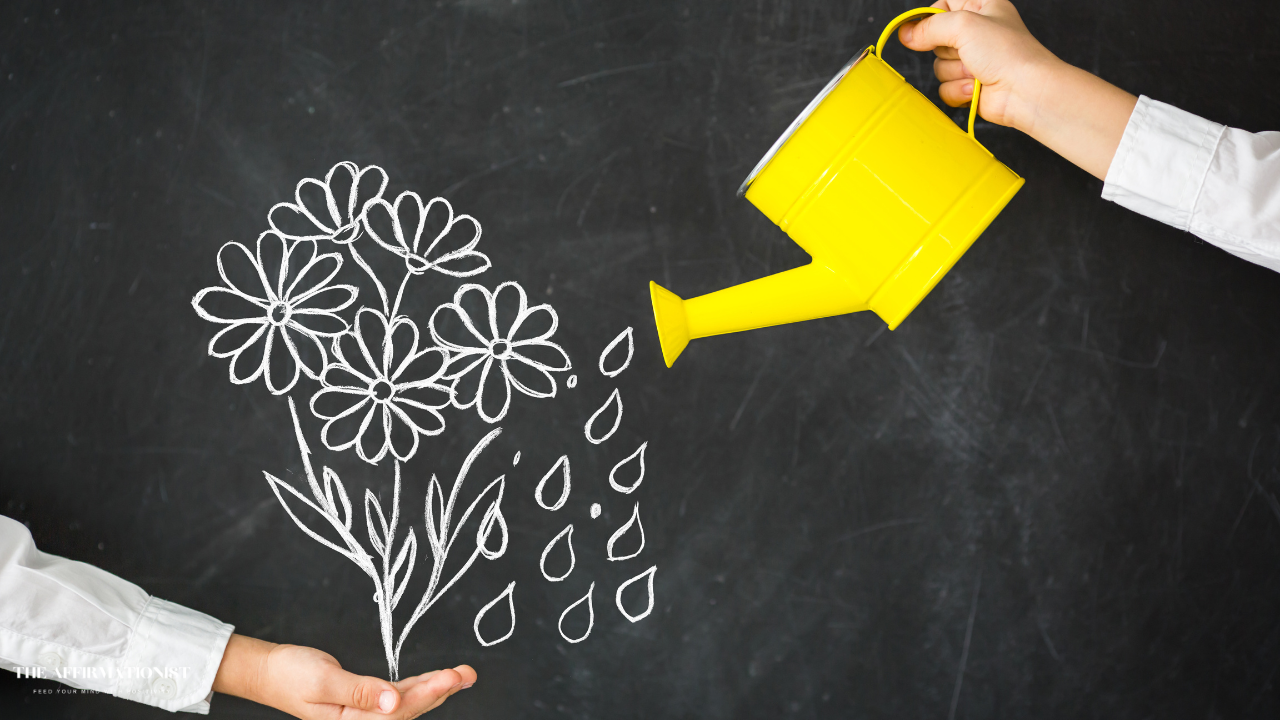
Unlearning is not a one-time event; it’s an ongoing process, a continuous practice of self-awareness and adaptation.
1. Cultivate a Growth Mindset:
- Embrace the belief that your abilities and intelligence can be developed through dedication and hard work. This foundational mindset is crucial for ongoing unlearning.
- See challenges as opportunities to learn and grow, rather than fixed limitations.
2. Regularly Review Your Beliefs:
- Periodically check in with yourself. Are the beliefs you hold still serving you?
- As you gather new experiences and information, be willing to update your internal operating system.
3. Embrace Discomfort:
- Unlearning can be uncomfortable. It requires stepping out of your comfort zone and challenging deeply ingrained patterns.
- Lean into this discomfort, knowing that it’s a sign of growth.
- Develop a tolerance for ambiguity and uncertainty.
4. Practice Self-Compassion:
- There will be moments of resistance, doubt, and even a desire to revert to old ways.
- Don’t judge yourself for these moments. Instead, offer yourself kindness and gentle encouragement.
- Remind yourself of your reasons for unlearning and the positive impact it has on your life.
5. Stay Curious and Open-Minded:
- Approach new ideas and perspectives with curiosity, rather than immediate judgment.
- Engage in active listening and be willing to consider viewpoints that differ from your own.
- Seek out diverse sources of information and challenge your own echo chambers.
6. Reflect and Integrate:
- After periods of significant unlearning, take time to reflect on the changes you’ve experienced.
- Integrate your new insights into your daily life and actions.
- Celebrate your progress and acknowledge your courage.
Conclusion: The Liberating Power of Letting Go
The gentle art of unlearning is a profound act of self-love and liberation. It is the courageous journey of shedding the unnecessary baggage of outdated beliefs, making space for a richer, more authentic, and infinitely more expansive life. By consciously questioning, gently releasing, and compassionately replacing the narratives that no longer serve us, we unlock our true potential, foster deeper connections, and navigate the complexities of life with greater resilience and joy.
This is not about becoming an empty vessel, but rather a more refined one – one that is continually optimizing, adapting, and aligning with its highest purpose. Embrace this gentle art, and witness the transformative power of letting go. The freedom you seek is often found not in gaining more, but in gracefully releasing what no longer serves.
Enhance Your Journey with These Empowering Tools
As you embrace change and navigate life’s transitions with the help of affirmations, it’s important to equip yourself with tools that support your growth and well-being. From affirmation card decks to self-care essentials, the right products can help reinforce your positive mindset and create a nurturing environment for personal transformation.
Below are some carefully selected items that can complement your affirmation practice, making it easier to stay focused, resilient, and mindful throughout your journey :
- 30.48 cm 15-Note Steel Tongue Drum D Key Percussion Instrument Cornices Shape Handpan Drum With Drum Mallets Carry Bag And Music Book, Used For Music Education Concert Spiritual Healing Yoga Entertainment 👉 item link
- Messages of Life Inspiration Cards – 44-Card Deck with Guidebook for Positive Affirmations & Spiritual Growth, Durable Paper Material, Ideal for Ages 14 & Up – Motivational Oracle Card Game 👉 item link
- Deck of Emotions Playing Cards – 54 Card Set for Mental Health, Family Bonding, Party Fun – Christmas, Halloween, Easter, Hanukkah, Thanksgiving – Ideal Gift for Birthday, Aesthetic Home Decor – Paper Material, No Electricity Needed 👉 item link
- 1pc Self-Care English Cover Star Moon Multicolored Optional Record 5 Minutes A Day, For Learning Supplies, Notebook, Library, More Affirmations Reflections, Optimistic, Happy, Simple Undated Hardcover 👉 item link
- 3pcs Wooden Framed Canvas Poster, Modern Art, Inspirational Canvas Painting, Ideal Gift For Bedroom Living Room Corridor, Wall Art, Wall Decor, Winter Decor, Room Decoration 👉 item link
